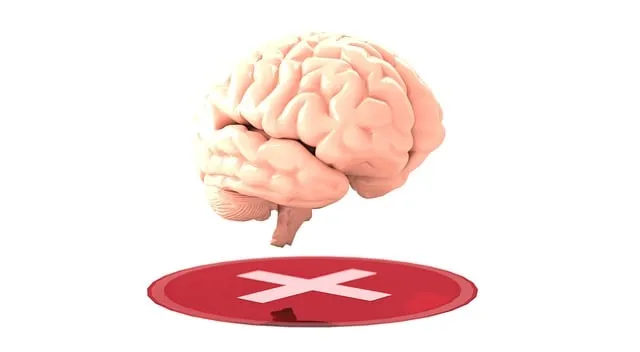Wheat Ridge Kaiser Permanente behavioral health services places paramount importance on patient safety through comprehensive risk management, utilizing structured assessments and tailored interventions underpinned by evidence-based practices. Their Community Outreach Program addresses community-specific risks, while programs like Mental Health Education empower individuals with self-improvement skills, including boosting self-esteem. Mental health professionals are supported via mindfulness meditation, cultural sensitivity training, stress management strategies, regular staff training, and access to mental health resources to mitigate challenges such as burnout and cultural misunderstandings. This multi-faceted approach ensures a supportive environment that fosters resilience among clients while prioritizing the well-being of healthcare providers.
In the dynamic field of mental health care, risk assessment is a cornerstone ensuring patient safety. This comprehensive guide explores crucial aspects of risk management, leveraging the expertise of Wheat Ridge Kaiser Permanente Behavioral Health Services as a beacon of best practices. From understanding risk assessment’s vital role to identifying and mitigating risks for both professionals and clients, we delve into strategies that foster secure and effective treatment environments. Discover how these practices contribute to robust risk management, reflecting the commitment of Wheat Ridge Kaiser Permanente behavioral health services to optimal patient outcomes.
- Understanding Risk Assessment in Mental Health Care
- The Role of Wheat Ridge Kaiser Permanente Behavioral Health Services
- Identifying and Mitigating Risks for Professionals and Clients
- Best Practices for Comprehensive Risk Management
Understanding Risk Assessment in Mental Health Care

In the realm of mental health care, risk assessment is a cornerstone of patient safety and service delivery, especially within facilities like Wheat Ridge Kaiser Permanente behavioral health services. It involves a systematic process of identifying, analyzing, and mitigating potential risks that patients may face during their journey towards recovery. By implementing comprehensive risk assessment tools, mental health professionals can anticipate challenges, develop proactive strategies, and ensure the best possible care for each individual. This proactive approach is vital in managing complex patient needs, especially considering the diverse range of mental health disorders and associated emotional regulation difficulties.
The Community Outreach Program Implementation at Wheat Ridge Kaiser Permanente plays a significant role in enhancing Mental Health Awareness and fostering an environment where risk assessment is not just a procedure but a continuous practice. Through this program, professionals are equipped to address unique community-based risks, ensuring that patient care extends beyond the clinical setting. Effective risk assessment enables mental health specialists to tailor interventions, offer support, and promote emotional well-being, ultimately contributing to positive outcomes in patient recovery.
The Role of Wheat Ridge Kaiser Permanente Behavioral Health Services

Wheat Ridge Kaiser Permanente Behavioral Health Services plays a pivotal role in promoting mental well-being and offering specialized care to individuals seeking support for their psychological health. This facility is renowned for its comprehensive approach, integrating evidence-based practices with innovative strategies to cater to diverse client needs. The team of seasoned professionals adheres to the Mind Over Matter Principles, emphasizing the power of mental resilience and personal growth.
Through a meticulously designed Mental Health Education Programs, they empower individuals with valuable knowledge and skills for self-improvement. This includes initiatives focused on enhancing self-esteem, a fundamental aspect of overall well-being. By fostering an environment that encourages open dialogue and evidence-based interventions, Wheat Ridge Kaiser Permanente Behavioral Health Services strives to revolutionize mental health care, ensuring clients receive the highest quality support throughout their journey towards recovery and personal transformation.
Identifying and Mitigating Risks for Professionals and Clients

For mental health professionals working at institutions like Wheat Ridge Kaiser Permanente behavioral health services, identifying and mitigating risks is paramount to ensure both professional well-being and client safety. These risks can manifest in various forms, from burnout and secondary trauma to ethical dilemmas and potential harm to vulnerable individuals. To effectively navigate these challenges, professionals must prioritize self-care practices such as Mindfulness Meditation, which has been shown to reduce stress and enhance emotional resilience.
Cultural sensitivity in mental healthcare practice is another crucial aspect of risk mitigation. Understanding and respecting diverse cultural backgrounds and beliefs can prevent miscommunication and foster stronger therapeutic alliances. Additionally, implementing robust stress management strategies within the workplace can create a healthier environment for professionals. This may include regular staff training on recognizing and addressing risks, as well as providing access to resources that support mental health and overall well-being.
Best Practices for Comprehensive Risk Management

At Wheat Ridge Kaiser Permanente behavioral health services, best practices for comprehensive risk management are paramount. This involves a multi-faceted approach that integrates rigorous Risk Assessment for Mental Health Professionals with proactive Crisis Intervention Guidance and Social Skills Training. By fostering a culture of safety and support, healthcare providers are equipped to anticipate and mitigate potential risks, ensuring the well-being not only of their clients but also themselves.
Comprehensive risk management begins with thorough initial assessments tailored to each client’s unique needs. Ongoing monitoring and regular review of risk factors allow for proactive interventions. Crisis Intervention Guidance plays a pivotal role in teaching individuals effective coping strategies and enhancing their ability to navigate challenging situations. Social Skills Training complements this by bolstering communication, empathy, and conflict resolution abilities, thereby reducing the likelihood of escalations. Together, these strategies create an environment that promotes mental health and fosters resilience among clients.
Mental health professionals face unique challenges that require a robust risk assessment framework. The article has explored this process, highlighting the critical role of organizations like Wheat Ridge Kaiser Permanente Behavioral Health Services in establishing comprehensive risk management practices. By identifying and mitigating risks for both professionals and clients, these services ensure safer, more effective care. Adopting best practices in risk assessment and management is essential to fostering a resilient and supportive environment within the mental health sector.






